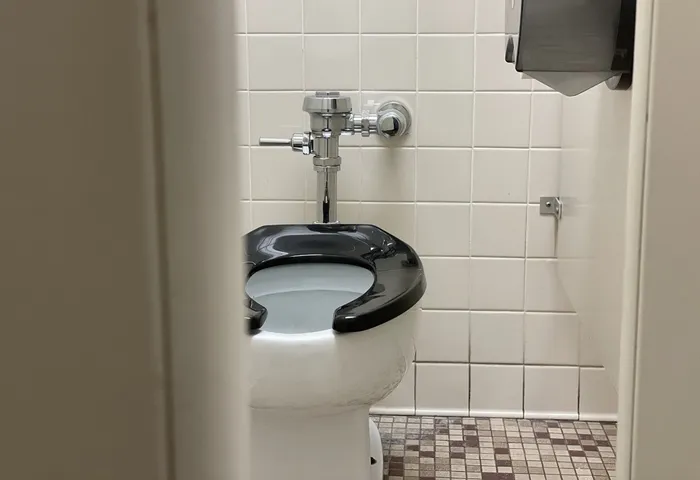How to spot and treat constipation in your child

Specialist paediatric gastroenterologist Dr Suveena Bisetty says ‘for most children, constipation is usually self-limiting and should resolve itself without medication. However, parents need to be aware that if a child has prolonged constipation that is left untreated, it can lead to the development of other problems.’
Durban — A specialist paediatric gastroenterologist practising at Netcare St Augustine’s Hospital shares how children may display symptoms of constipation and when it is necessary to seek medical attention.
The Paris Consensus on Childhood Constipation Terminology (PACCT) defines constipation as ‘a period of eight weeks with at least two of the following symptoms: defecation frequency less than three times per week, faecal incontinence frequency greater than once per week, passage of large stools that clog the toilet, palpable abdominal or rectal faecal mass, stool withholding behaviour, or painful defecation’.
Dr Suveena Bisetty said: “For most children, constipation is usually self-limiting and should resolve itself without the need for medication. However, parents need to be aware that if a child has prolonged constipation that is left untreated, it can lead to the development of other problems.”
Stool-holding behaviour which may indicate your child is having difficulty with bowel movements:
- Crossing ankles or legs
- Stiffening the body
- Attempting to hide during defecation
- Crying or sweating on the toilet
- Pushing against walls, the floor or objects when trying to pass a stool
“The child may experience abdominal pain and could pass overflow diarrhoea even though they are constipated, as some of the stool manages to move past solid waste remaining in the bowel,” said Dr Bisetty.
A clinical assessment tool, the Bristol Stool Chart, describes the shape and consistency of stools from Type 1 “very constipated” to Type 7 “diarrhoea”.
Dr Bisetty said that constipation may range from Type 1, which is described as separate hard ‘lumps, pebbles, ribbons or nuts that are difficult to pass’ or Type 2, slightly constipated’ where the stool forms a sausage shape with large lumps.
“If constipation persists, parents must consult their child’s paediatrician or healthcare practitioner to establish the cause and resolve or manage it. If left untreated, the child may develop haemorrhoids, also known as piles, as the perianal veins become damaged and engorged, and may lead to bleeding.
“Other potential impacts of severe constipation could include faecal impaction, where the bowel may become obstructed, which often presents with vomiting. Faecal incontinence or encopresis may also occur, where the child loses control of their bowel movements, often resulting in soiling of the underwear or ‘accidents’,” Dr Bisetty explained.

Urgent red flags parents should not ignore when it comes to childhood constipation:
“It is imperative to seek medical attention for any of the complications described above, as well as in any of the following instances,” Dr Bisetty said.
- Symptoms of constipation from birth or in the first few weeks of life.
- The newborn does not pass stool or has delayed stool from 72 hours old.
- A child missing school due to constipation.
- Ribbon-like stools.
- Leg weakness or locomotor movement delay.
- Abdominal distension (stomach extending from the body) with vomiting.
- Abnormal appearance of the anus.
Understanding the causes of constipation:
“Constipation can be attributable to numerous causes across all age groups. Establishing the root cause of an individual’s persisting constipation is essential to treating it correctly,” Dr Bisetty said.
- Motility causes relating to stool movement may include dietary aspects such as insufficient fibre and/or water or food protein intolerance. Irritable bowel syndrome, colonic inertia, pelvic floor disorders, or Hirschprung’s disease, a congenital condition where the muscles of the baby’s colon do not function normally, causing problems with passing stool.
- Metabolic causes include diabetes, chronic kidney disease, high calcium intake, which is more common with supplements in paediatric patients, low potassium levels, hypothyroidism, and hyperparathyroidism.
- Neurogenic causes relating to the nerves may include multiple sclerosis, spinal cord injury or pathology from birth, stroke, neuropathy or myopathy in children with cerebral palsy.
- Medications, such as opioids that may contain codeine, anti-inflammatories and certain cough syrups, iron or calcium supplements, some antidepressants or mood stabilisers, and diuretics, may have constipation as a side effect. Chronic laxative use is also a risk factor.
- Mechanical factors affecting the gastrointestinal tract are less common among the paediatric population.
- Other potential causes of constipation may include autoimmune conditions such as scleroderma, a connective tissue disease; coeliac disease, a chronic autoimmune disorder where the ingestion of gluten leads to damage in the small intestine; food allergies, a split in the lining of the anus known as an anal fissure, or psychological factors.
How to treat constipation:
“Treatment of constipation is multi-factorial, and diet is a crucial component. Parents should ensure the child eats more fibre and drinks more water, and they should have less than 500ml of dairy products per day. The child shouldn’t have processed foods and should eat more vegetables and less red meat,” Dr Bisetty explained.
“Your healthcare practitioner can advise on medication, including a combination of stool softeners, bulking agents and laxatives.
“Parents should also address behavioural aspects that could contribute to their child’s constipation. Encourage good toilet habits, and teach children that their knees need to be above the level of their hips, with no pushing or straining when passing stools. If needed, the child may require the assistance of a pelvic floor physiotherapist,” Dr Bisetty continued.
“In some cases, children’s constipation may require radiological investigation to exclude other potential disease pathology that could be underlying, and your doctor may order blood tests and a stool sample for analysis.
“When parents are alert to the symptoms of constipation in their children, a great deal of discomfort and other related health concerns can be prevented.”
WhatsApp your views on this story at 071 485 7995.
Daily News